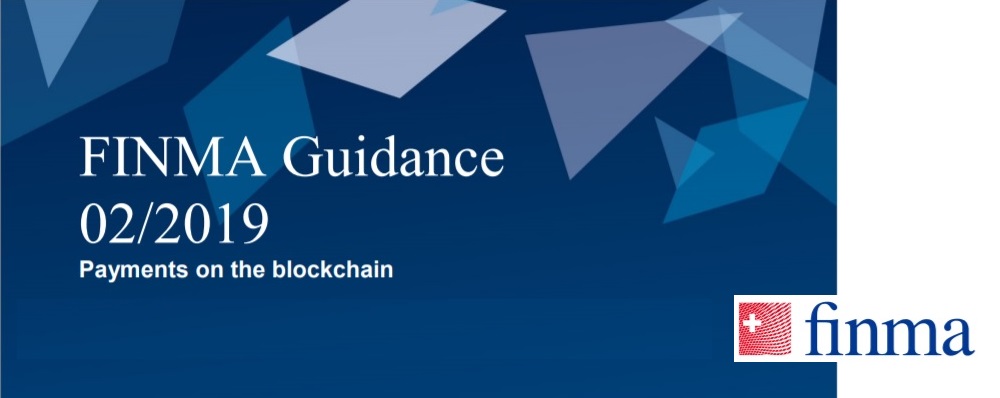
The Swiss Financial Market Supervisory Authority FINMA has published guidance on how it applies Swiss anti-money laundering rules to financial services providers supervised by FINMA in the area of blockchain technology. FINMA has also issued banking licences to two new blockchain service providers.
FINMA recognises the innovative potential of new technologies for the financial industry. It applies the relevant provisions of financial market law in a technology-neutral way.
„However, blockchain-based business models cannot be allowed to circumvent the existing regulatory framework. This applies particularly to the rules for combating money laundering and terrorist financing, where the inherent anonymity of blockchain technology presents increased risks.”, according to the press release.
On 21 June 2019 the international body tasked with developing policies to combat money laundering, the Financial Action Task Force (FATF), issued guidance on financial services in the context of blockchain technology. As for traditional bank transfers, information about the client and the beneficiary must be transmitted with transfers of tokens (with the exception of transfers from and to unregulated wallet providers). Only then, for example, can the provider receiving this information check the name of the sender against sanction lists or check that the information provided about the beneficiary is correct.
FINMA has consistently applied the Anti-Money Laundering Act to blockchain service providers since their emergence. In its guidance published today, FINMA provides information about this technology-neutral application of the regulation to payment transactions on the blockchain. Institutions supervised by FINMA are only permitted to send cryptocurrencies or other tokens to external wallets belonging to their own customers whose identity has already been verified and are only allowed to receive cryptocurrencies or tokens from such customers. FINMA-supervised institutions are thus not permitted to receive tokens from customers of other institutions or to send tokens to such customers. This practice applies as long as information about the sender and recipient cannot be transmitted reliably in the respective payment system. Unlike the FATF standard, this established practice applies in Switzerland without the exception for unregulated wallets and is therefore one of the most stringent in the world.
For the first time, FINMA has issued banking and securities dealers’ licences to two pure-play blockchain service providers. The companies involved are SEBA Crypto AG registered in Zug and Sygnum AG registered in Zurich, which will offer services for institutional and professional customers. As usual, various conditions are attached, ensuring that the businesses are set up in an orderly manner. The practice set out in the guidance published today applies in full to the supervision of the two new institutions.
FINMA Guidance 02/2019 –Payments on the blockchain
Banking 4.0 – „how was the experience for you”
„To be honest I think that Sinaia, your conference, is much better then Davos.”
Many more interesting quotes in the video below: